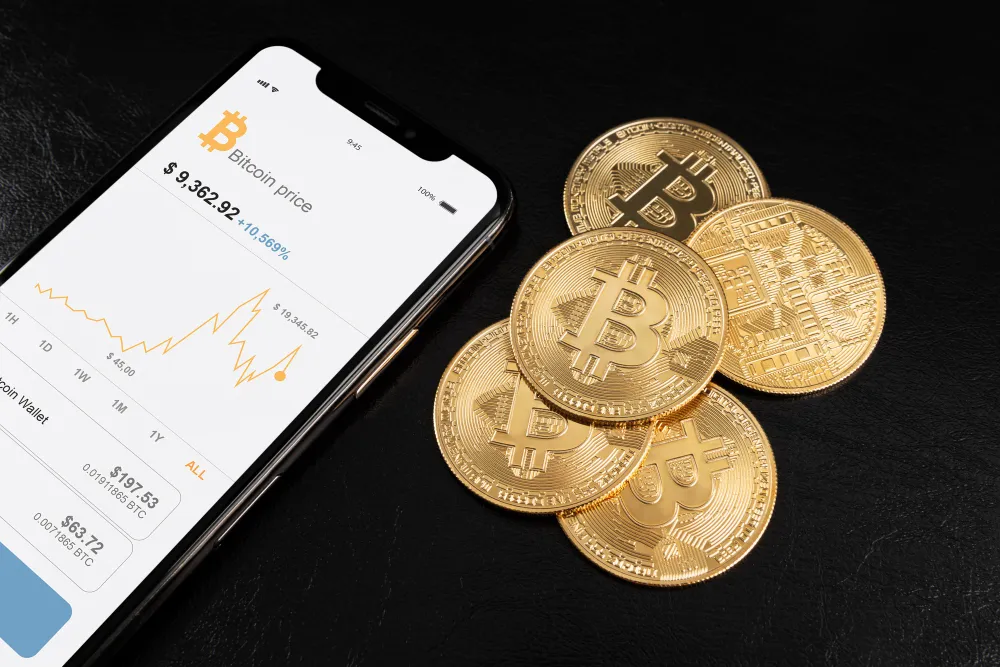Bitcoin vs. Gold: Rival Stores of Wealth?
Bitcoin is often referred to as the modern gold — but is this comparison accurate? Can we genuinely align these two forms of value?
Is Bitcoin Comparable to Gold?
For ages, gold has been viewed as the ultimate store of value. It’s a rare, tangible, and durable asset recognized worldwide, symbolizing wealth and security.

As our world becomes more digital, decentralized, and unpredictable, a pressing question in U.S. financial discussions has emerged
Is Bitcoin the new “digital gold”?
Understanding a Store of Value
In the realm of finance, a store of value is an asset that retains its purchasing power over time.
In simpler terms, it holds its value even amid economic turmoil, inflation, or a decline in trust in traditional currencies like the dollar.
Regardless of global events, a store of value remains robust and reliable—much more so than most national currencies.
Gold has historically played this role effectively, maintaining its worth even during crises like wars, recessions, or currency failures.
Its value is acknowledged worldwide, and its limited supply due to natural extraction constraints ensures a fairly steady availability.
Bitcoin: The ‘Digital Gold’ Idea
Bitcoin was introduced as a counterpart to the conventional financial system, advocating a decentralized structure powered by blockchain tech.
Its creator, who goes by the name Satoshi Nakamoto, developed a scarce digital currency with a capped supply of 21 million units.
This built-in scarcity, paired with decentralization and resistance to censorship, has prompted many experts to liken Bitcoin to gold.
Both assets are hard to “create,” yield no passive income (like dividends or interest), and primarily serve to maintain value in tough times for many investors.
Recently, some institutional investors in the U.S. have started to see Bitcoin as a safeguard against inflation.
Parallels Between Gold and Bitcoin
Both gold and Bitcoin are characterized by a finite supply. The limited availability of gold stems from natural extraction challenges, while Bitcoin’s supply is managed through algorithms.
Both are inherently decentralized: gold isn’t reliant on governments or financial institutions, and neither is Bitcoin.
They’re recognized as alternative assets outside the conventional financial framework, often sought after during turbulent times.
While gold has consistently been a liquid asset, Bitcoin is rapidly being traded across exchanges, funds, and financial platforms in the U.S.
Key Differences
Gold has been a reliable store of value for millennia, whereas Bitcoin, with just over ten years of history, displays significantly higher volatility.
In brief time frames, Bitcoin can fluctuate by 20% in just a few days.
Gold is a tangible asset that can be securely stored, while Bitcoin exists only in digital form, necessitating technical know-how and cybersecurity measures.
Gold is heavily regulated and recognized by central banks. In contrast, Bitcoin encounters regulatory hurdles and uncertainties, though things are evolving in the U.S. with ETF approvals and increased SEC oversight.
Gold serves various industrial and jewelry purposes and acts as a monetary reserve for nations. Currently, Bitcoin primarily gains value as a speculative asset or a digital store of value.
Investor Perspectives in the U.S.
In the U.S., views are sharply divided. Conservative managers still favor gold as a reliable refuge during crises.
Traditional funds maintain gold in their portfolios for diversification and security. Conversely, younger, tech-savvy investors and forward-thinking fund managers are betting on Bitcoin as the digital age’s store of value.
The rise of products like spot Bitcoin ETFs, which were recently approved by the SEC, has made this asset more approachable and reliable for everyday investors in the regulated U.S. financial landscape.
Key Considerations for Investors
- Risk Profile: Bitcoin’s volatility can lead to sharp drops, while gold is generally steadier but might not appreciate as much.
- Investment Horizon: Gold is ideal for short to medium-term safety, whereas Bitcoin may yield better long-term profits, albeit with added risk.
- Diversification: Experts suggest not favoring one over the other, but rather blending both in suitable amounts for a well-rounded portfolio.





